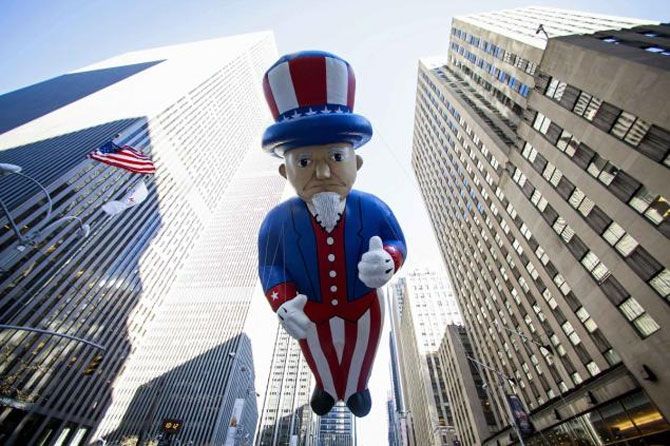One small interest rate hike of one-quarter of a per centage point is unlikely to have much impact on the budget

For everyone who has been saying interest rates can only go up, well - now is their time. But what does the Federal Reserve's decision to raise interest rates actually mean for your wallet?
Probably not much for the near-term.
One small interest rate hike of one-quarter of a per centage point is unlikely to have much impact on your budget, but that does not mean you should ignore the Fed's first rate increase since 2006.
The move is likely to be the first of many and will gradually boost rates for a variety of consumer loans, said Greg McBride, chief financial analyst for Bankrate.com. It will give people a window to lock in current, still-low rates before they creep higher.
"Now is the time to take action, so you're not susceptible to the cumulative effect of rising interest rates," McBride said.
Here is what to expect:
Mortgages
Mortgages tend to follow the 10-year Treasury, but a steady increase in short-term rates eventually will trickle up to home loans, McBride said.
People with adjustable rate mortgages should consider refinancing into hybrids with rates in "the low-to-mid" 3 per cent range that will fix the rates for the next five to seven years before becoming adjustable, he said.
Financing into a 30-year fixed mortgage means a larger jump to rates around 4 per cent. That might make sense for those who do not expect to move, but involves a substantial increase in monthly payments.
"That's a little bit of a tougher sell," McBride said.
Credit cards
Fed rate hikes are likely to be quickly reflected in variable credit card rates, which can adjust without the usual 45-day notice that issuers have to give when they raise rates on their own.
Low-rate offers will not disappear, though, since issuers have found them to be a good way to attract new customers in a competitive environment, said Bill Hardekopf, chief executive of LowCards.com, a comparison site.
What could change over time is how long the initial teaser rates last.
"If rates continue to rise, we might see a reduction in the duration of the zero- per cent periods from a year or longer to some shorter period," said Ben Woolsey, president of CreditCardForum.com.
Borrowers who act now can still get zero per cent offers for as long as 21 months, and use them to help pay off their debt before rates march higher, McBride said.
Home equity borrowing
Those with balances on home equity lines of credit, or HELOC, should consider rolling that debt into their mortgage with a cash-out refinance if they can, McBride said.
Variable-rate HELOCs will respond quickly to rising interest rates. On top of that, many HELOCs taken out just before the real estate recession are approaching the end of their 10-year interest-only repayment periods, meaning much bigger payments are ahead if borrowers do not act now.
But some do not have the equity, credit scores or income to get a new loan, said Erin Lantz, vice president of mortgages at real estate site Zillow.
"The people who won't be able to qualify are not in a great spot," Lantz said.
Auto loans
Borrowing for a new car is likely to remain cheap in the near future thanks to fierce competition among automakers, said Eric Lyman, vice president of industry insights for TrueCar, an online car-shopping site.
Automakers can use their captive finance arms to keep rates low for new cars, getting most of their profit from car sales rather than from the financing, Lyman said. At some point, though, their cost of funds will rise enough to force rate increases.
Rates for used cars are likely to climb before that, though, since there are not captive lenders to keep lending costs low, he said.
Savings
Average savings account rates have crept up from a quarter per centage point two years ago to just under a half per centage point now, but do not expect much more of an increase any time soon.
Banks will be much quicker to pass along rate increases to borrowers than they will be to savers, McBride said.
Savers who want higher rates should search out competing offers from online banks, many of which currently offer rates of 1 per cent or a little above.
Liz Weston is a Reuters columnist. The opinions expressed are her own.
Image: An "Uncle Sam" balloon floats down Sixth Avenue. Photograph: Eric Thayer/Reuters







